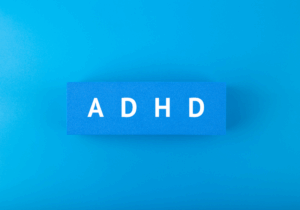Anxiety is a normal and adaptive emotion that everyone experiences in response to danger or stress. However, when this emotion becomes excessive, persistent, and begins to interfere with daily life, it may indicate an anxiety disorder. This is one of the most common mental health disorders worldwide, and although many people suffer from it, they don’t always receive the right treatment—or receive it in time.
What is an anxiety disorder?
Anxiety disorders are a group of psychological conditions characterized by excessive worry, intense fear, or avoidance of situations that pose no real threat. Some of the most common types include:
- Generalized Anxiety Disorder (GAD)
- Panic Disorder
- Specific Phobias
- Social Anxiety Disorder
- Obsessive-Compulsive Disorder (OCD)
- Post-Traumatic Stress Disorder (PTSD)
Symptoms can include palpitations, sweating, difficulty breathing, intrusive thoughts, muscle tension, insomnia, and a constant sense of threat or danger.
When anxiety is not properly addressed, it can have a significant impact on a person’s life:
- Functional impairment: It may interfere with job performance, academic progress, or personal relationships.
- Physical health issues: Chronic stress related to anxiety can contribute to cardiovascular problems, digestive issues, and sleep disturbances.
- Avoidance of important situations: Many people begin to avoid places, people, or activities out of fear, severely limiting their freedom and quality of life.
- Depression and substance abuse: Untreated anxiety can lead to other mental health disorders such as depression, or to self-medication through alcohol or drugs.
- Social isolation and missed personal or professional opportunities.
Fortunately, anxiety is treatable, and various therapeutic options can significantly improve the patient’s quality of life:
- Psychotherapy: Cognitive Behavioral Therapy (CBT) is one of the most effective approaches. It teaches individuals to identify and modify anxious thought patterns and avoidance behaviors.
- Pharmacological treatment: In some cases, anti-anxiety or antidepressant medications may be necessary, especially if anxiety severely interferes with daily functioning.
- Relaxation and mindfulness techniques: Strategies such as deep breathing, meditation, and yoga help calm the nervous system and reduce physical symptoms.
- Lifestyle changes: Getting enough sleep, maintaining a balanced diet, exercising regularly, and reducing caffeine or alcohol intake are essential.
- Group support: Participating in support groups or group therapy can provide connection and show individuals they are not alone in their experience.
Professional support is key to overcoming an anxiety disorder. A psychologist or psychiatrist can:
- Assess the nature and severity of the disorder.
- Develop a personalized treatment plan.
- Teach practical tools to manage symptoms.
- Provide consistent support throughout therapy.
- Detect the presence of any co-occurring conditions, such as depression or unresolved trauma.
Getting professional help not only improves mental health, but also empowers individuals and helps them regain control of their lives.
Living with anxiety is not a life sentence. While the disorder can be overwhelming, it’s important to remember that anxiety is treatable and does not define the person who experiences it. The sooner help is sought, the faster and more effective the recovery process will be.
Acknowledging the need for support is a courageous act. With the right guidance, it is possible to regain peace of mind, build tools to face challenges, and enjoy greater emotional well-being.






